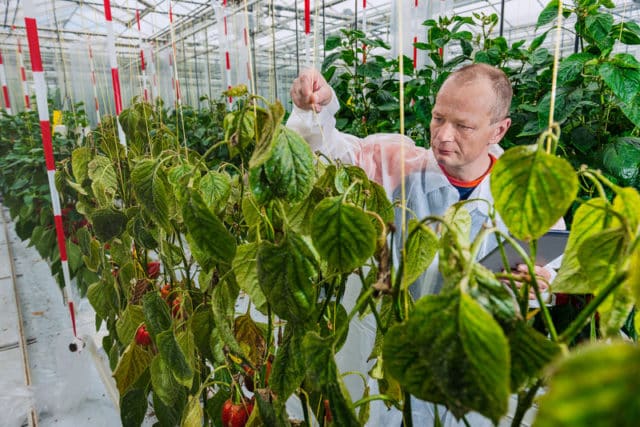Roundup is a weed-killing herbicide sold by Bayer AG and its subsidiary Monsanto. The chemical has recently been linked to cancer development in people who use it regularly. A jury just awarded more than $2 billion in damages to people who now have cancer after years of using Roundup. There are many more similar cases still pending, and this is a real worry for investors at Bayer, as well as for farmers who have been relying on the chemical for years.
 However, the cancer that Roundup has caused in the pending court cases may only be part of the problem. The active ingredient in Roundup is a chemical called glyphosate. Recent studies have found that glyphosate from Roundup pollutes human water sources and food supplies. This has terrible consequences for the environment and for the people that might accidentally consume the chemical. Clearly, this chemical is not safe, and manufacturers of products like Roundup should stop or lessen their use of it.
However, the cancer that Roundup has caused in the pending court cases may only be part of the problem. The active ingredient in Roundup is a chemical called glyphosate. Recent studies have found that glyphosate from Roundup pollutes human water sources and food supplies. This has terrible consequences for the environment and for the people that might accidentally consume the chemical. Clearly, this chemical is not safe, and manufacturers of products like Roundup should stop or lessen their use of it.
Monsanto got a patent for the chemical in the 1970s, and since then, it has become the leading chemical for weed reduction. Monsanto encouraged its use by creating genetically modified seeds for crops that could withstand glyphosate so farmers would be more likely to use Roundup.
Monsanto and other manufacturers of glyphosate have told the public for years that the chemical is safe for use and has minimal effects on human health. The chemical works by getting in the way of a biological pathway that plants need to grow. Humans and animals don’t have that pathway, so it does not stop their growth in the same way. But glyphosate has bad effects on human and animal health in other ways.
 The evidence about Roundup causing cancer is not conclusive, however. The International Agency for Research on Cancer says glyphosate is likely cancer causing. The agency made that decision based on publicly-available, peer-reviewed articles. However, the Environmental Protection Agency and the European Food Safety Authority (EFSA) decided not to join in on that conclusion. These agencies relied on a mix of private and public studies. A different team of international biologists concluded that the EFSA study was flawed, though.
The evidence about Roundup causing cancer is not conclusive, however. The International Agency for Research on Cancer says glyphosate is likely cancer causing. The agency made that decision based on publicly-available, peer-reviewed articles. However, the Environmental Protection Agency and the European Food Safety Authority (EFSA) decided not to join in on that conclusion. These agencies relied on a mix of private and public studies. A different team of international biologists concluded that the EFSA study was flawed, though.
Another independent group of biologists issued a very worrying report about glyphosate in 2016. They collected a group of studies from the previous ten years and found that the chemical was in a large portion of human drinking water and groundwater. This means that potentially millions of people have been exposed to the chemical.
Studies performed on rodents about the poison levels in the chemical show that it does damage to the liver and kidneys. Also, pigs who had been exposed to a large amount of glyphosate often had offspring with birth defects. Most of these effects would not be found through a traditional toxicology test done by the agencies in charge of regulating pesticides.
Another study found that glyphosate has the potential to cause problems in the biological functions of future generations. When parents are exposed to a certain chemical like glyphosate, it can affect the genes and traits that the parents pass on to their children. This means that children that were never actually exposed to glyphosate could feel the harmful effects of the chemical. They could develop prostate or kidney disease or even have birth defects.
The people in charge of regulating pesticides need to take notice of the harmful effects of glyphosate. Not only has it been linked to cancer, but it has also been shown to cause other harmful effects as well. The regulators need to update their science and their regulations.


























